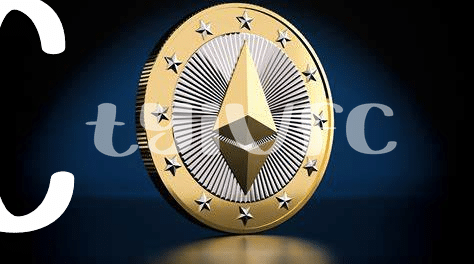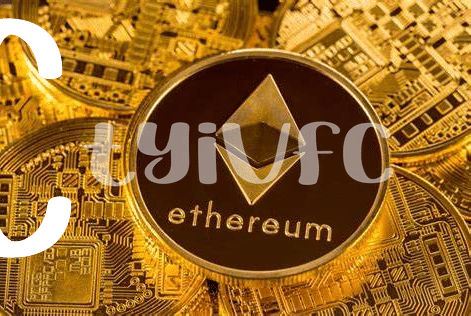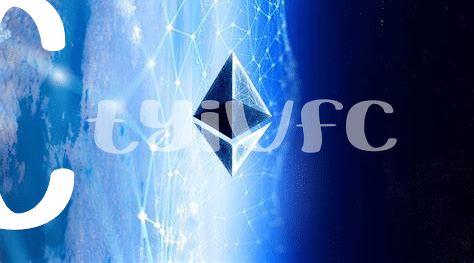🌱 Origins and Background: Bitcoin and Ethereum Explored

In the world of digital currencies, two giants stand out: Bitcoin, the trailblazer that paved the way, and Ethereum, the innovative challenger reshaping the landscape. Introduced in 2009 by a person or group known as Satoshi Nakamoto, Bitcoin brought the concept of cryptocurrencies into the light. Its goal was simple yet revolutionary – to enable direct transactions between users without the need for intermediaries like banks. Fast forward to 2015, and the scene welcomed Ethereum, crafted by the young programmer Vitalik Buterin. Unlike Bitcoin, Ethereum was not just about transactions. It introduced a platform where developers could build their applications, making it a playground of endless possibilities.
| Feature | Bitcoin | Ethereum |
|---|---|---|
| Year Launched | 2009 | 2015 |
| Main Purpose | Peer-to-peer transactions | Decentralized platform for applications |
| Creator | Satoshi Nakamoto | Vitalik Buterin |
As the world adapted to the Bitcoin concept, its limitations in transaction speeds and scalability became apparent. This is where Ethereum stepped in, offering not just a digital currency, Ether, but also a framework for building decentralized applications, bringing a new dimension to blockchain technology. Both have carved their niches, shaping the future of digital finance and beyond.
💡 Core Concepts: Understanding Blockchain Differences
At the heart of Bitcoin and Ethereum lies the revolutionary technology known as blockchain, but not all blockchains are created equal. Imagine two digital ledgers: one is a straightforward guest book at a quaint bed and breakfast, where guests simply sign their names (Bitcoin), while the other is a complex register at a grand hotel, where guests can leave detailed reviews, request services, and even pay for their stay through an interactive interface (Ethereum). Bitcoin’s blockchain focuses on recording transactions efficiently and securely, making it digital gold. In contrast, Ethereum takes it a step further by allowing users to create complex contracts that automatically execute tasks when certain conditions are met, opening a world of possibilities beyond simple transactions.
As we dive deeper into the https://wikicrypto.news/maximizing-profits-when-to-sell-your-ethereum-holdings, it’s essential to understand how these differences in blockchain technology impact their use and scalability. Bitcoin offers a robust, tried-and-tested approach to secure transactions, making it a beacon for those looking for stability in the digital currency realm. Ethereum, on the other hand, acts like a global computer, hosting and executing programs known as smart contracts, which can revolutionize everything from voting systems to financial transactions. This flexibility makes Ethereum an exciting platform for innovation, but it also presents challenges in speed and scalability as the network grows. The paths they’re forging in the digital world are distinctive yet complementary, showcasing the diverse potential of blockchain technology.
💰 Money Matters: Bitcoin Vs. Ethereum as Investments

When it comes to talking about Bitcoin and Ethereum as options for investing, imagine you’re choosing between two very different types of fruit, each with its own unique flavor and nutritional benefits. Bitcoin, often hailed as the digital gold, entered the scene as a pioneer, offering a revolutionary way to think about money and investments. Its main appeal is in its scarcity; much like gold, there’s a limit to how much Bitcoin exists, making it a sought-after asset during times when traditional money seems unstable. On the other hand, Ethereum introduces itself not just as a currency but as a platform for building complex projects – think of it as a toolkit for creating all sorts of digital goodies, from apps to virtual notaries. This flexibility could mean Ethereum’s value lies not just in the ‘Ether’ coin itself but in the myriad possibilities its platform offers for the future of the internet. One could argue that investing in Ethereum might be akin to investing in the internet in its early days. Each brings to the table their unique strengths – Bitcoin with its unmatched notoriety and trust among investors, and Ethereum with its boundless potential yet to be fully realized. As the story of digital currency continues to unfold, both investments carry their risks and opportunities, shaped largely by technological advances and shifts in investor sentiment.
🏗️ Building Blocks: Smart Contracts and Their Impact

Imagine a world where agreements and contracts can enforce themselves without any human intervention, where trust is built into the system rather than based on the reputation of the parties involved. That’s the revolutionary world smart contracts promise, springing forth from the innovative minds behind Ethereum. While Bitcoin introduced us to decentralized money, Ethereum took a step further, introducing the concept of decentralized applications running on its blockchain through these smart contracts. This isn’t just about creating a new type of application; it’s about redefining how we interact with the digital world. Transactions that once required human oversight, from simple payments to complex legal operations, can now be automated, reducing the risk of fraud and mistakes. Smart contracts are indeed the quintessential building blocks for a new era of digital architecture, enabling a universe where deals are transparent, secure, and free from the control of any single entity. This move towards automation and trustless agreements has the potential to profoundly impact everything from finance to real estate, and beyond. As we ponder the transformative power of these digital contracts, keeping an eye on the broader crypto market, including developments in digital currencies like Litecoin, becomes crucial. For those curious about how Litecoin fits into this evolving landscape, what is the current litecoin price might offer some insights. It highlights how different elements within the crypto world are increasingly interconnected, driving us towards a future where our digital and physical realities are seamlessly integrated.
🚀 Speed and Scalability: Racing Towards the Future
When it comes to moving fast and carrying a lot 🚢 of cargo, Ethereum and Bitcoin are in a remarkable race. Imagine two trucks on a highway: Bitcoin is like a sturdy old truck, reliable but not the fastest, built to carry a precious load securely – gold bars, let’s say. Ethereum, on the other hand, is more like a newer truck, designed not only to haul stuff but to perform tasks along the way quickly, like delivering goods and also picking up various items, thanks to its ability to handle ‘smart contracts.’ This is where the concept of speed and scalability really kicks in; it’s all about how much each truck can carry (scalability) and how fast (speed).
As the highway expands and technology evolves, Ethereum is looking into ways to supercharge its truck, aiming to carry more and move faster without breaking a sweat. Here’s a simple breakdown of their current abilities:
| Cryptocurrency | Speed | Scalability |
|---|---|---|
| Bitcoin | 7 transactions per second | Limited by block size |
| Ethereum | 30 transactions per second | Enhanced by upcoming upgrades |
Bitcoin is working on its route too, finding ways to make its load lighter and its path more secure, ensuring that its gold bars reach their destination safely. Both are powering through the digital age, laying down the tracks for a future where speed and ability to handle a big load makes all the difference. With communities and developers in their corner, they’re not just in a race with each other but are also paving the way for a whole new world of digital movement.
🌍 Community and Culture: the Ecosystems Behind the Tech

Imagine two bustling cities full of life, innovation, and constant chatter – these are the communities behind Bitcoin and Ethereum, each with its own unique vibe and set of unwritten rules. The Bitcoin community is often viewed as the gold standard of the cryptocurrency world, where the primary focus is on security, storing value, and the revolutionary idea of owning your digital money. It’s a bit like the old town of the digital finance world; steeped in tradition, its inhabitants are proud pioneers of this space. On the other hand, Ethereum feels like the innovative city center, buzzing with developers, creators, and entrepreneurs who see it as the ultimate platform to build the future. It’s more than just a digital currency; it’s a global computing platform for smart contracts and decentralized applications (dApps), making it the go-to place for those looking to push boundaries and explore new frontiers. Both communities thrive on discussion, development, and, sometimes, heated debates, fostering a culture of learning and innovation. While they may approach things differently, the passion for blockchain technology and its potential to change the world unites them. For those in the Ethereum camp looking to diversify their investments or simply cash out part of their holdings, options like selling Ethereum can offer a practical way to achieve their financial goals while staying engaged with the ecosystem. Through their distinct cultures, Bitcoin and Ethereum are not just shaping the future of finance but also creating vibrant communities that reflect the diversity and dynamism of this exciting digital age.
